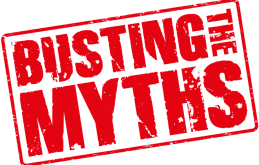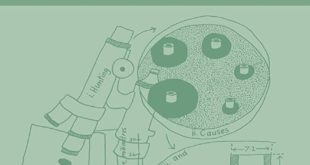Bayes theorem — what’s the big deal? There’s nothing magical about Bayes’ theorem. It boils down to the truism that your belief is only as valid as its evidence. If you have good evidence, Bayes’ theorem can yield good results. If your evidence is flimsy, Bayes’ theorem won’t be of much use. Garbage in, garbage out. The potential for Bayes abuse begins with your initial estimate of the probability of your belief, often called the “prior” … In many cases,...
Read More »Fade to Grey
.[embedded content]
Read More »Issue 103 of Real-World Economics Review is out
Issue 103 of Real-World Economics Review is out Yours truly’s paper Mainstream economics — the poverty of fictional storytelling is downloadable here.
Read More »Busting the natural rate of unemployment myth
Busting the natural rate of unemployment myth Almost sixty years ago Milton Friedman wrote an (in)famous article arguing that (1) the natural rate of unemployment was independent of monetary policy and that (2) trying to keep the unemployment rate below the natural rate would only give rise to higher and higher inflation. The hypothesis has always been controversial, and much theoretical and empirical work has questioned the real-world relevance of the idea...
Read More »Never, never, never give in!
Never, never, never give in! .[embedded content]
Read More »The road to hell
The road to hell .[embedded content]
Read More »Boycott Starbucks
.[embedded content]
Read More »Warranting causal claims — vouchers and clinchers
Warranting causal claims — vouchers and clinchers Methods for warranting causal claims fall into two broad categories. There are those that clinch the conclusion but are narrow in their range of application; and those that merely vouch for the conclusion but are broad in their range of application. Derivation from theory falls into the first category, as do randomized clinical trials (RCTs), econometric methods and others. What is characteristic of...
Read More »Paul Krugman — finally — admits he was wrong!
Paul Krugman — finally — admits he was wrong! In a recent essay titled “What Economists (Including Me) Got Wrong About Globalization,” adapted from a forthcoming book on inequality, Krugman writes that he and other mainstream economists “missed a crucial part of the story” in failing to realize that globalization would lead to “hyperglobalization” and huge economic and social upheaval, particularly of the industrial middle class in America. And many of...
Read More »‘Severe tests’ of causal claims
‘Severe tests’ of causal claims For many questions in the social sciences, a research design guaranteeing the validity of causal inferences is difficult to obtain. When this is the case, researchers can attempt to defend hypothesized causal relationships by seeking data that subjects their theory to repeated falsification. Karl Popper famously argued that the degree to which we have confidence in a hypothesis is not necessarily a function of the number of...
Read More » Lars P. Syll
Lars P. Syll






